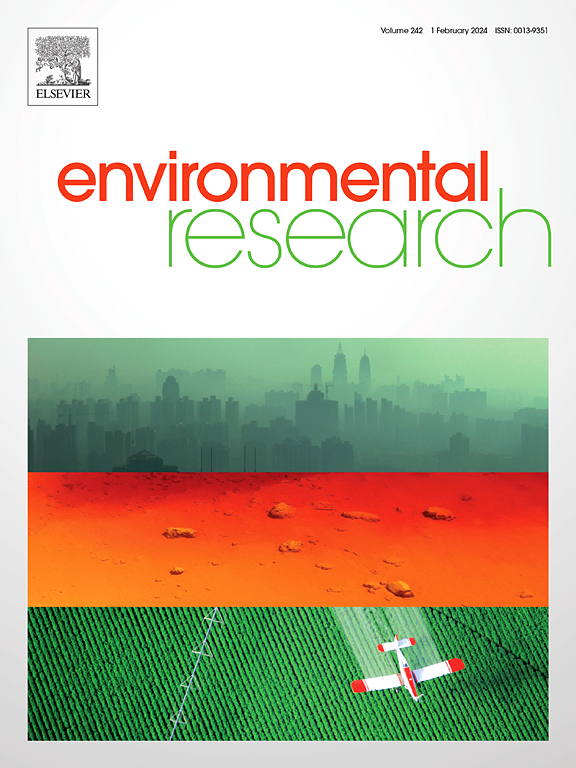Microplastics alter microbial structure and assembly processes in different soil types: Driving effects of environmental factors
IF 7.7
2区 环境科学与生态学
Q1 ENVIRONMENTAL SCIENCES
引用次数: 0
Abstract
Microplastics (MPs) are emerging pollutants with potential impacts on soil ecosystems. However, it is unclear how MPs-induced changes in the soil environment drive microbial structure and assembly in different soils. Here we investigated the responses of microbial structure, enzyme activities and soil properties to biodegradable polylactic acid (PLA) and conventional polythene (PE) with different doses in different soil types. Results showed that PLA generally decreased soil NH4+-N and NO3−-N levels but increased dissolved organic carbon (DOC) and pH, whereas PE exhibited contrasting effects depending on soil type. MPs significantly stimulated soil urease, sucrase, catalase and phosphatase activities, with dose-dependent responses observed under PLA treatments in fluvo-aquic soil. Additionally, MPs altered microbial composition and colonized specific bacterial taxa in different soils. In microbial assemblies dominated by stochastic processes, MPs, especially PE promoted the deterministic processes. Co-occurrence patterns showed lower microbial complexity under PLA treatments compared to PE. Notably, we revealed soil-type-specific response patterns: DOC emerged as the primary driver in red soil ecosystems, while pH exerted dominant control in fluvo-aquic soil systems. Furthermore, perturbation of microbial communities by MPs affected functions related to metabolism. These findings highlight that MPs-induced shifts in microbial communities and assembly processes are soil-type-specific and mediated by soil characteristics changes, providing critical insights for assessing the ecological risks of MPs in diverse agricultural soils.

微塑料改变了不同土壤类型中的微生物结构和组装过程:环境因素的驱动效应
微塑料是一种新兴的污染物,对土壤生态系统具有潜在影响。然而,目前尚不清楚mps诱导的土壤环境变化如何驱动不同土壤中的微生物结构和组装。研究了不同土壤类型下不同剂量的可生物降解聚乳酸(PLA)和常规聚乙烯(PE)对土壤微生物结构、酶活性和土壤性状的影响。结果表明,聚乳酸总体上降低了土壤NH4+-N和NO3−-N水平,但增加了土壤溶解有机碳(DOC)和pH,而聚乳酸对土壤的影响因土壤类型而异。MPs显著刺激了土壤脲酶、蔗糖酶、过氧化氢酶和磷酸酶的活性,并在PLA处理下观察到剂量依赖性反应。此外,MPs改变了不同土壤的微生物组成,并定植了特定的细菌分类群。在以随机过程为主的微生物组合中,MPs,尤其是PE促进了确定性过程。共发生模式显示PLA处理下微生物复杂性较PE处理低。值得注意的是,我们揭示了土壤类型特异性的响应模式:DOC在红壤生态系统中成为主要驱动因素,而pH在河流-潮土系统中发挥主导作用。此外,MPs对微生物群落的扰动影响了与代谢相关的功能。这些发现强调了MPs诱导的微生物群落和组装过程的变化是土壤类型特异性的,并由土壤特征变化介导,为评估不同农业土壤中MPs的生态风险提供了重要见解。
本文章由计算机程序翻译,如有差异,请以英文原文为准。
求助全文
约1分钟内获得全文
求助全文
来源期刊

Environmental Research
环境科学-公共卫生、环境卫生与职业卫生
CiteScore
12.60
自引率
8.40%
发文量
2480
审稿时长
4.7 months
期刊介绍:
The Environmental Research journal presents a broad range of interdisciplinary research, focused on addressing worldwide environmental concerns and featuring innovative findings. Our publication strives to explore relevant anthropogenic issues across various environmental sectors, showcasing practical applications in real-life settings.
 求助内容:
求助内容: 应助结果提醒方式:
应助结果提醒方式:


